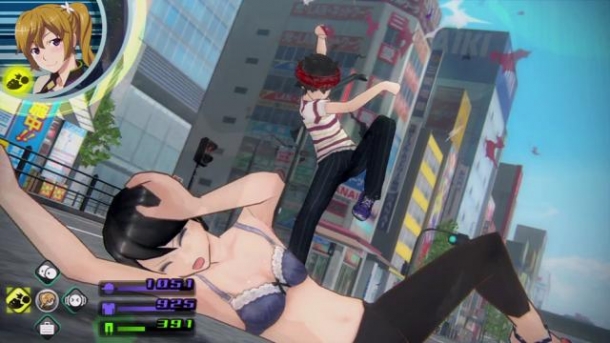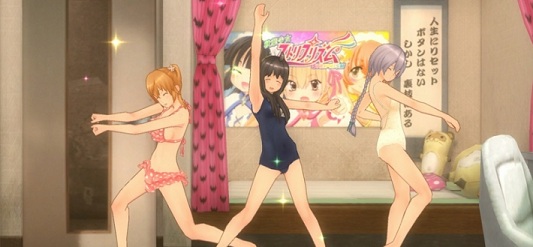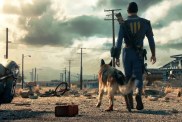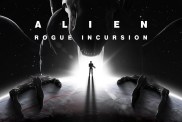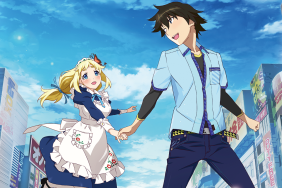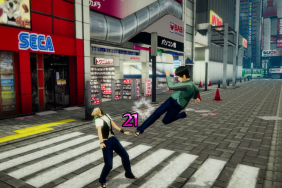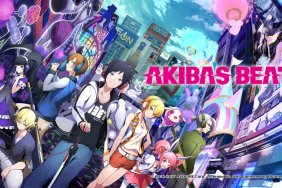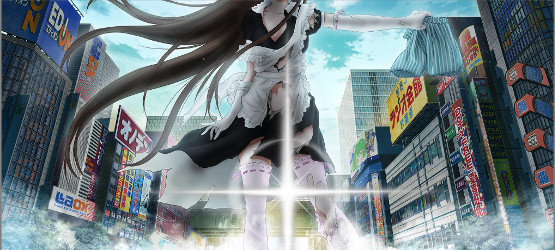
Have you ever wondered about the wonders of casting the voice actors in a game or some of the difficulties of localizing such an odd game? If you answered yes to either of those questions then you’re in luck. We recently got to chat with Executive VP Ken Berry and Localization Specialist Tom Lipschultz of XSEED games about their upcoming title Akiba’s Trip: Undead & Undressed. So sit back, relax, and check out these answers in our Akiba’s Trip interview — but please, keep your clothes on.
PlayStation LifeStyle: What were the biggest challenges you faced when localizing Akiba’s Trip: Undead and Undressed [released as Akiba’s Trip 2 in Japan]?
Tom Lipschultz: Aside from the usual hurdle of just… figuring out where each line we’re translating fits into the overall game (never let anyone tell you context isn’t important!), the biggest hurdle so far, frankly, has really just been convincing people the game is worth their time. I mean, WE know the game is worth their time (the office unanimously agreed) but we only typically get as far as “after you identify vampires, you remove their outerwear so they are exposed to the sun and melt” before people are either like “COOL I’M IN” or “NOPE. NOPE. NOPE.” We rarely are given a chance to talk about the recreation of Akihabara, the satire, before judgments are made.
A recent article identified this title as “one of the most despicable video games of all time,” citing “facts” about the game (that were incorrect) to back up this viewpoint and basically urging anyone with a conscience not to support it. And really, what can you say to that? How can you possibly convince people with an agenda that Akiba’s Trip: Undead & Undressed [Akiba’s Trip] isn’t softcore porn, but rather tongue-in-cheek social satire? I’ve tried, of course. I’ve gotten into long, drawn-out arguments with people over this game. But once people have made up their mind that it’s nothing more than “fanservice trash,” it’s pretty much impossible to convince them otherwise.
These arguments did help me figure out the best way to describe the game to people, though: I tell them it’s like a nerdy Japanese video game version of The Hangover. If you think about it, both Las Vegas and Akihabara are somewhat similar on a certain level. They’re both places that are world-famous for their indulgent nature — but while Vegas is all about sex, booze and gambling, Akihabara is all about indulging in “otaku” (Japanese hardcore nerd) fetishes without anyone judging you for it. And just as The Hangover is a scathing, over-the-top satire of Vegas culture that also celebrates the city’s unique identity, so too is Akiba’s Trip a scathing, over-the-top satire of Akiba culture that also celebrates its unique identity.
…No one’s really commented on that simile just yet, but I think it describes the game really well, and gives a good idea of the kind of irreverent fun players will find within it.
PSLS: What steps were taken for QA during localization?
Tom: Nothing too different from the usual, really: We hired an outside QA house to check Sony technical requirements and functionality and such, while at the same time we independently played through the game ourselves countless times, double-checking every side mission, every line of dialogue, every unlockable and every piece of in-game equipment we could get our hands on. With an open world-esque game like this, it’s important to see everything you possibly can in context, since the Japanese language is mostly devoid of pronouns, conjugations and singular/plural distinctions.
The nature of this game made it more challenging to QA than your usual linear JRPG, but we managed, and I think we wound up with a pretty top-notch localization (containing what I honestly feel is our best English dub to date, along with the original Japanese audio for all you gaming purists out there).
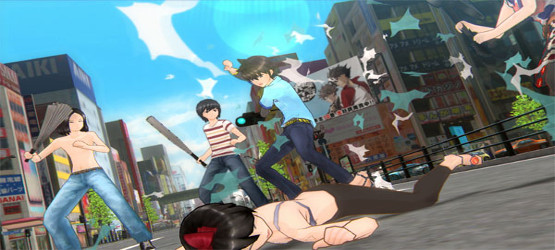
PSLS: How do you ensure consistency when localizing for multiple regions and languages?
Tom: We only typically localize to English at XSEED, so it’s really all about internal consistency if you’ve got multiple translators and editors on the same project (which we did for this one). Our methods for ensuring consistent terminology and such differ from game to game, but this time around it was pretty easy, since all the system text (NPC names, item names, etc.) was in one spreadsheet file, divided into multiple clearly-labeled tabs. So, all we had to do was make sure everybody was referencing that file at all times, and we were golden.
PSLS: Has any content been removed from the Japanese version?
Tom: Short answer, no. Long answer, sort of?
Basically, nothing has been censored and none of the in-game advertisements or company placements had to be removed or altered in any way (anything that’s a parody, like “Sister Donut” instead of “Mister Donut,” is straight from the Japanese version).
However, the game features over a hundred ad flyers that are handed out by shopkeepers, and these are actual ad flyers for actual companies that exist in the real town of Akihabara in real life. In both the Japanese and English versions of the game, you’re able to view these flyers in detail, but the Japanese version has textual information accompanying them as well — stuff like their address, phone number, website URL, etc. And although Acquire was able to get us the rights to keep all the flyers themselves intact, this textual information had to be removed for legal reasons. Most of it is present within the flyer images anyway, so you’re not actually missing anything in the end, but it’s still worth noting in the spirit of full disclosure.
I know a few people have been asking us about DLC items, too, since the Japanese version of the game has DLC items from other games like Disgaea and Neptunia, as well as anime like Genshiken, and even items associated with the popular GAMERS mascot character DiGi Charat. All of this DLC will be released for free in the weeks following the game’s launch, on both PS3 and Vita. The only DLC items we’re not able to offer are the two DoCoMo contract perks [available in the Japanese version of the game only by renewing your phone plan with cell network provider called DoCoMo]. These items aren’t connected to any other games or anime, and were just unique outfits. Their exclusion is unfortunate, but they’re definitely not the DLC items you guys have been asking about — those are all absolutely good to go!
PSLS: Did you have to “dumb” anything down for the West?
Tom: Not at all. Part of the charm of this game is its distinctly Japanese flavor and the authentic Akihabara experience it’s able to provide, and we didn’t want to do anything to detract from that. There are of course certain very Japanese things discussed within the game, but they all translated to English pretty well — the worst we really had to do was sneak a short explanation of something into the dialogue every now and again, to help players who know absolutely zilch about Japanese culture quickly figure out what an “otaku” is, or what sorts of things Akihabara is known for. And since this game is far from subtle in those aspects, they proved to be rather easy tasks to accomplish!
PSLS: Seeing as Japan got a PS4 version, any idea if that is coming to NA and Europe?
Ken Berry: Yes, the PS4 version is definitely coming to NA, it just had to be a few months after the PS3/PS Vita releases as the developer ACQUIRE was still working on it while we were wrapping up localization on the PS3/Vita versions. Nothing has been officially announced for Europe just yet, but I’d say the chances are good considering that NIS America has already announced the PS3/Vita versions.
(Editor’s Note** This question was sent in before the announcement of the PS4 version. It was left it in because he does answer a question about the European PS4 version.)
PSLS: How long is the process of casting for voice acting? How long is the recording process usually?
Tom: Casting the voices is usually pretty easy. Basically, we come up with a list of all the characters in the game (as well as who can theoretically be doubled with whom in a pinch), and we describe each character in detail and provide the studio with pictures and Japanese voice samples for their reference. Sometimes, we also provide the studio with a list of “dream actors” we’d ideally like to get for certain roles, because we often have people in mind who would simply be perfect for them.
The studio then tries to cast as many of our dream actors as possible. When they’re not available, the studio will send us names and demo reels of people who seem like they’d be good fits for the parts in question and are available. We then evaluate these names and demo reels as a team, decide on the final casting, and get everything scheduled. It’s maybe a week-long process at most.
Then comes the actual voice-recording, which is usually done over 2-4 days… but we ordinarily dub games that have a maximum of 2,000 or so voiced lines. Akiba’s Trip had nearly 10,000 (or, as I like to say, “over 9,000!”), so that wound up being a 16-day effort instead. It’s absolutely the longest and most complex voice-recording we’ve ever engaged in, in our entire history as a company, but the end result is a thing of absolute beauty. The director Cup of Tea Productions got for us, Taliesin Jaffe, was exceptionally talented and fun to work with, and the actors all had an absolute blast. A lot of people intentionally went outside of their comfort zones — low-voiced actors going high, high-voiced actors going low, one actor putting on a Scottish accent to play the “foreign tourist” side character, etc. — simply because they could, and you can tell just by listening to the voice-acting in the final product that absolutely everyone involved was thoroughly enjoying themselves.
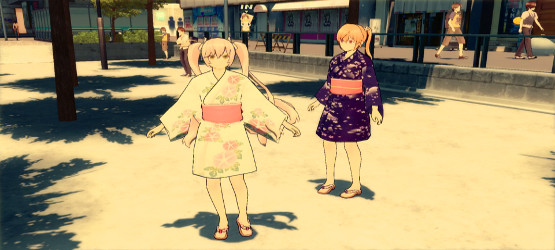
PSLS: Have you ever personally had to step in and provide a voice for any game?
Tom: Co-worker Jason and I were the XSEED representatives sent to oversee the voice-recording during Akiba’s Trip 16 day marathon, and we both had an opportunity to head into the booth and lend our voices to the effort. After my previous one-liner in Ys: The Oath in Felghana (in which I play a guard who says, “Presenting, the lady of the castle!”, which required six takes and still just sounds passable at best), I was expecting my voice work on Akiba’s Trip to be a disaster, but somehow or another, I managed to make my voice do some things I’ve never heard it do before, and I’m pretty proud of how it turned out. Listen for me in the crowd during the Rin concert toward the beginning of the game: I’m the guy who yells “SOOOO CUTE!!!”, among other things. (Incidentally, Jason is one of the photographers during that same scene, and he sounds great. He was channeling the squeaky-voiced teen from “The Simpsons”, and he totally nailed it!)
Ken: “Had” is definitely a key word here. Way back in the day of doing voice-overs for Wild ARMs 4, we ran out of actors but still had a couple minor roles left to voice. Our team was forced to complete them ourselves somehow, and I got stuck doing a few lines for Zed, who was a character from a previous game that had a cameo appearance during a special move cut-scene. It was only a few lines, but I was so nervous and awful that I’m sure I killed any good memories people may have had of Zed from earlier.
PSLS: Any plans to localize the original Akiba’s Trip?
Ken: Though we played the original when it first came out on PSP and thought it was a lot of fun, unfortunately we have no plans to localize it anytime in the near future.
PSLS: Japanese games are known to have rather unorthodox name usage and such. Any funny moments stand out on Akiba’s Trip: Undead and Undressed when you started to localize it?
Tom: Far too many to list. I think one of the ones I’m most proud of, though, is a reference to an energy drink during one particular scene. In the Japanese, the energy drink is called “Terashaki,” and is supposed to be a new, super-potent drink containing “an absolutely irresponsible number of Chinese herbs.” The name is a take-off on a real-life Japanese energy drink called “Megashaki,” which later had a more potent form released called “Gigashaki.” So of course, “Terashaki” would be the next logical step, right?
Now, I’ve spent a lot of time in Japan, and I’d never heard of Megashaki or Gigashaki before working on Akiba’s Trip… which means it’s more than likely that a majority of the English-speaking playerbase wouldn’t have heard of them either. As such, the joke in the name would’ve fallen flat if it were translated directly. So I thought about it for a little, and ultimately decided to go with an equivalent joke — something that similarly references a popular American energy drink, while also taking it one step farther like the Japanese does.
And thus, “Bald Bull” was born.
PlayStation LifeStyle would like to thank both Tom Lipschultz and Ken Barry at XSEED Games for taking the time to answer our questions. Akiba’s Trip: Undead & Undressed on August 12th for the PlayStation 3 and PlayStation Vita, with a PlayStation 4 release coming later in the year.
Akiba's Trip: Undead & Undressed Interview
-
1

-
2607143 0737759795 Qlnea
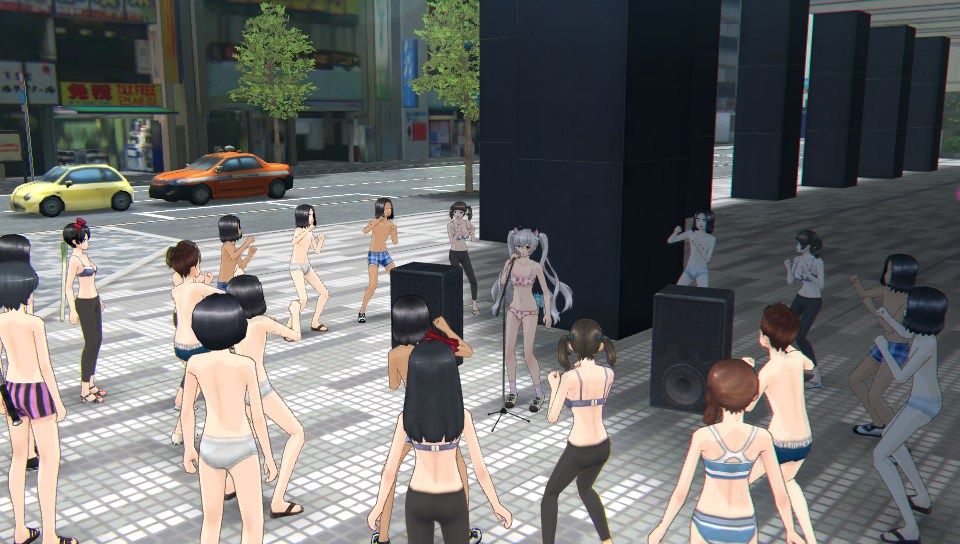
-
Akb Trip 2 Na Summer
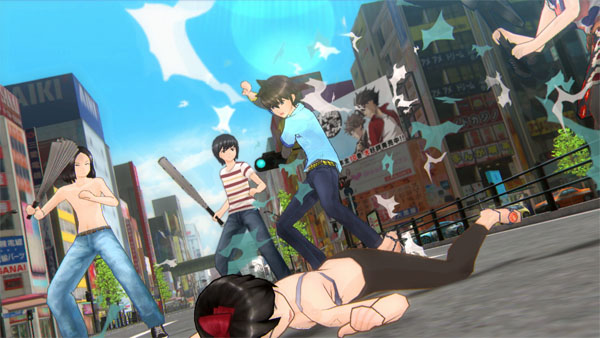
-
Akibas Trip 2 15 11 03
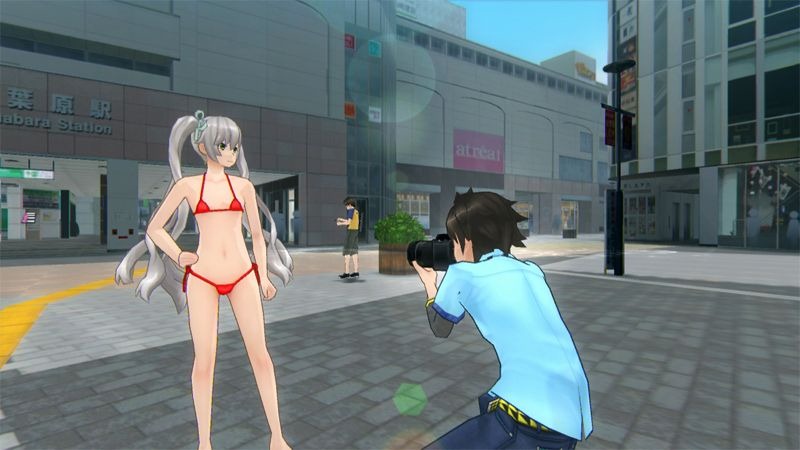
-
Akibas Trip Undead and Undressed
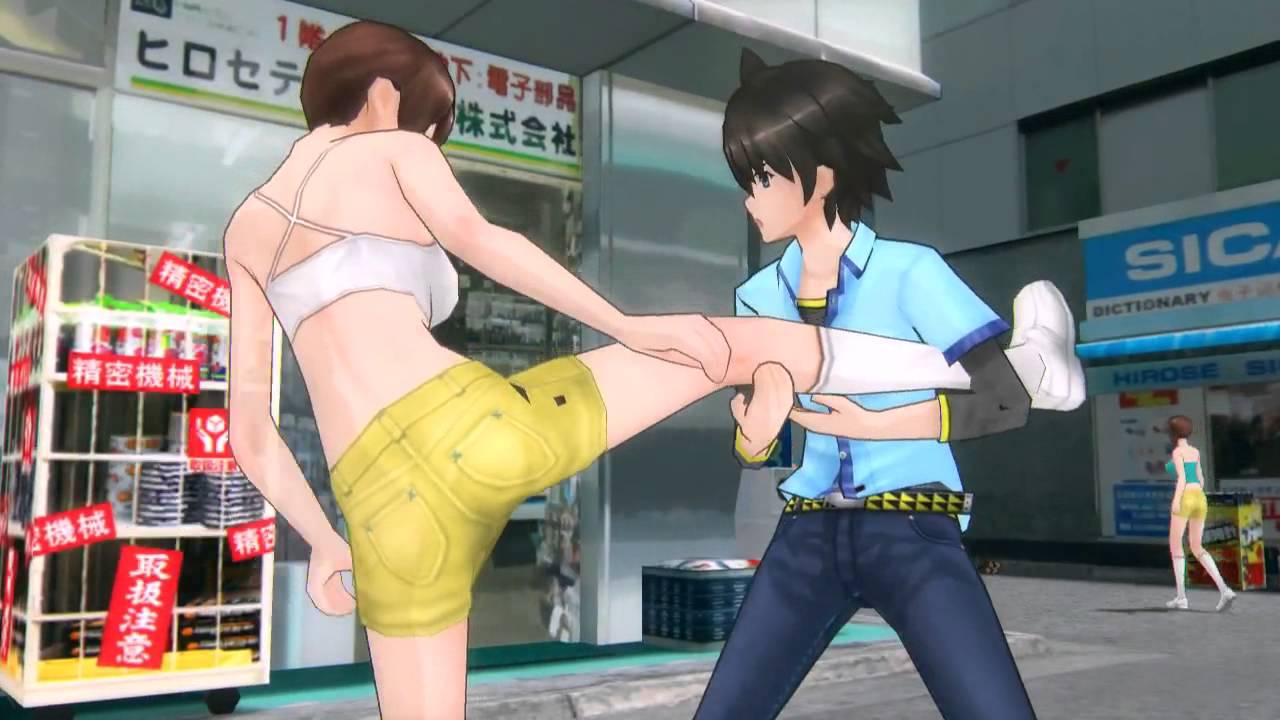
-
Akibas Trip Undead and Undressed1

-
Akibas Trip
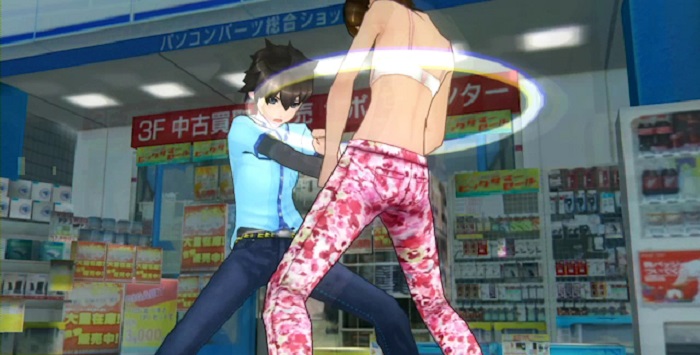
-
Akibas_trip_2_01
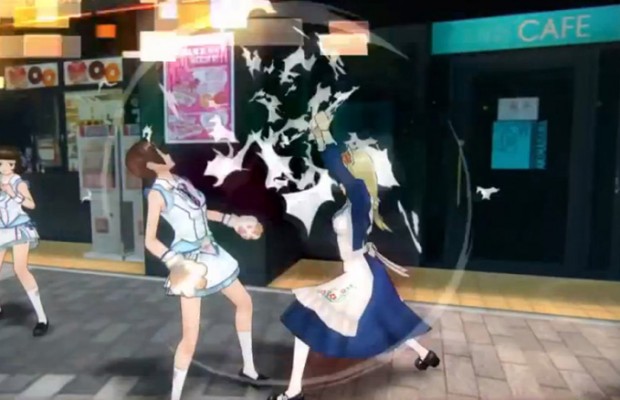
-
Akibas_trip_2_combat_screenshot
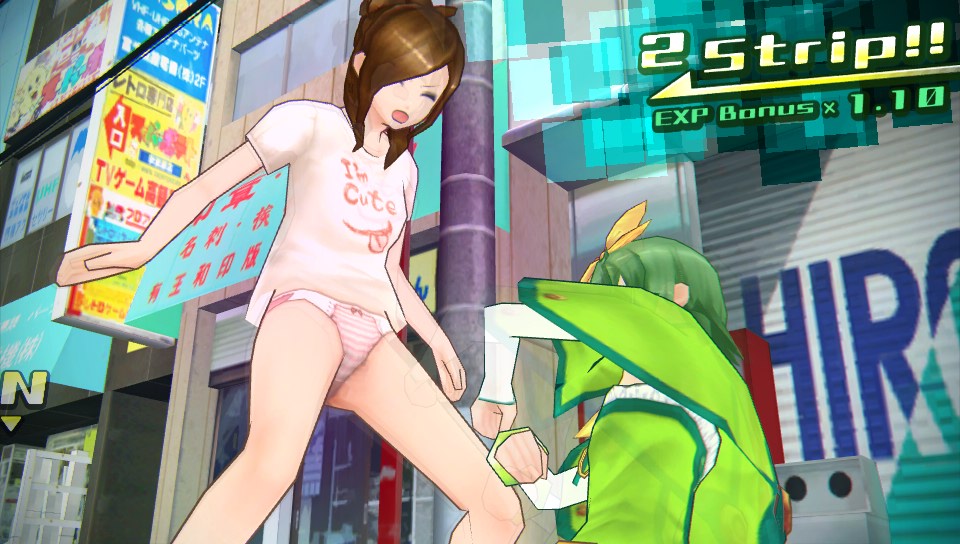
-
Akibastrip610
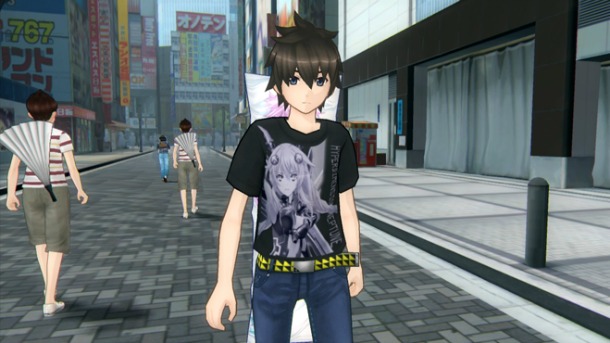
-
Gfs_337018_2_17
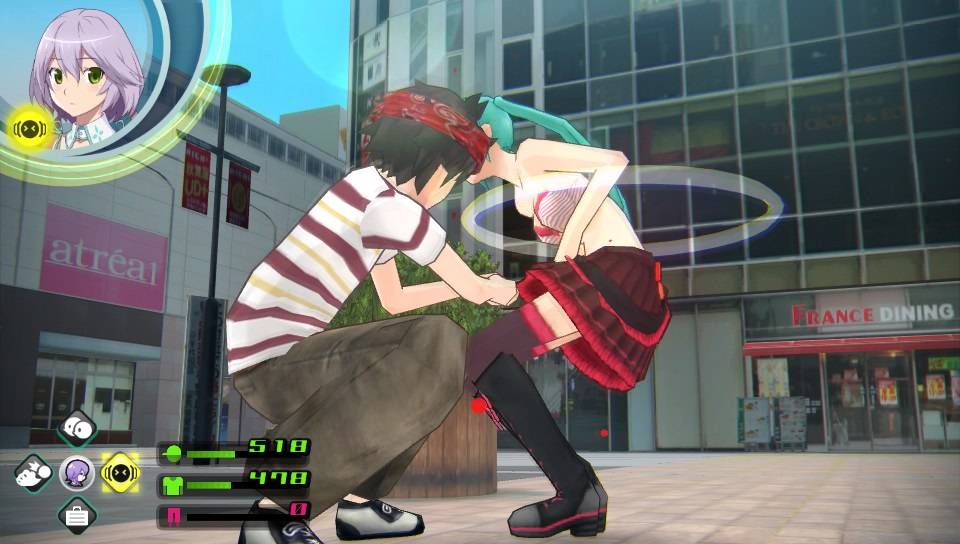
-
News_photo_43042_1406148120
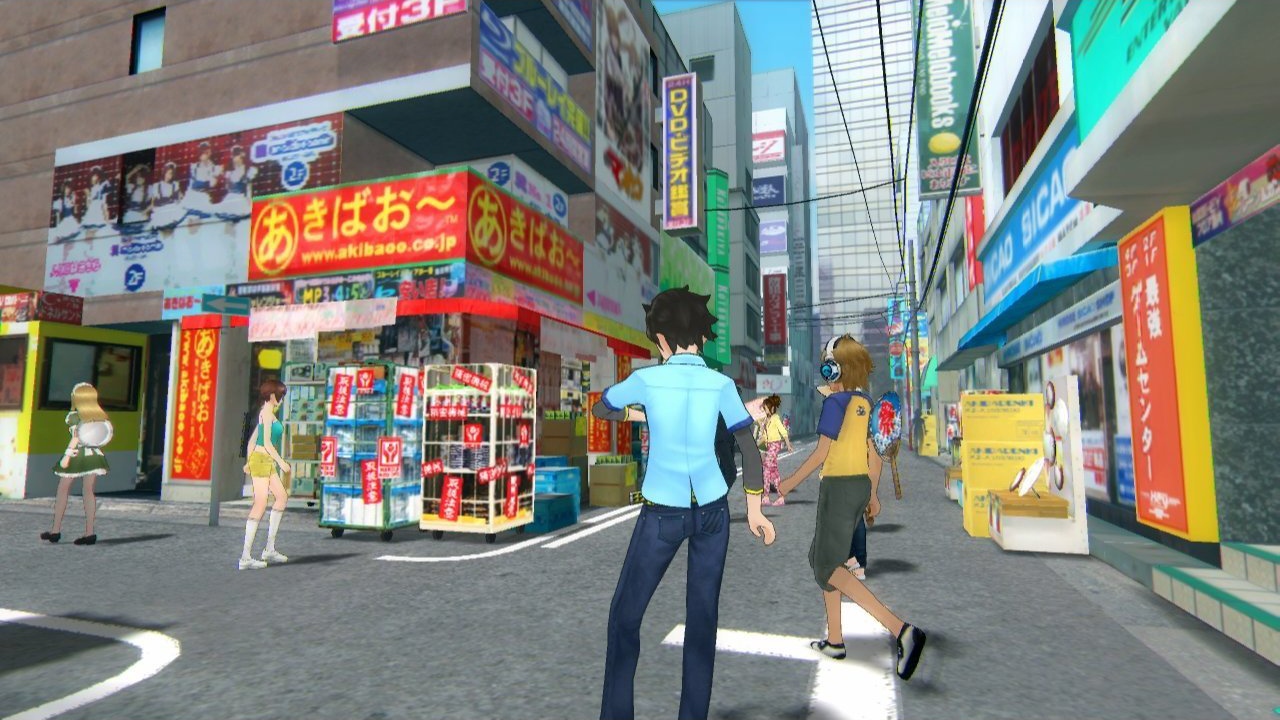
-
Ss01_52_thumb
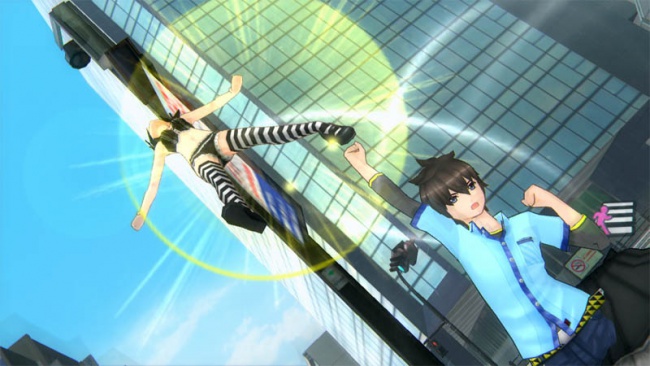
-
Sum_2_2_28762
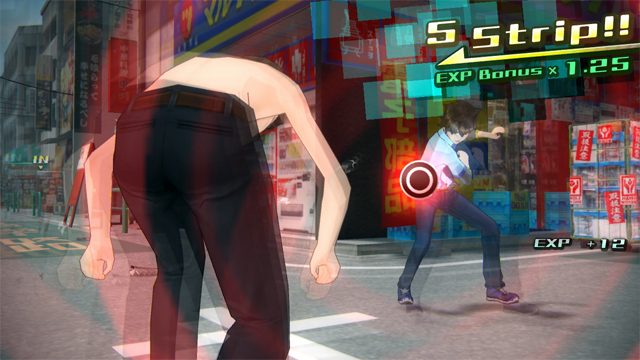
-
Xseed Localizing Akibas Trip Undead Undressed 320299 Large
